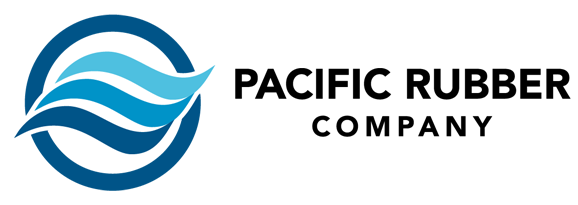Vamac Epichlorohydrin
Epichlorohydrin rubber, also known as ECH rubber or ECO rubber, is a specialized synthetic elastomer that offers excellent resistance to fuel, oil, and various chemicals. It is derived from the polymerization of epichlorohydrin monomer, which results in a highly durable and versatile rubber material. ECH rubber exhibits exceptional resistance to swelling and degradation when exposed to harsh environments, making it a popular choice for applications in the automotive, aerospace, and oil industries.
One of the key advantages of epichlorohydrin rubber is its resistance to petroleum-based fuels, oils, and solvents. This makes it ideal for gaskets, seals, and hoses used in engines and fuel systems. Its ability to maintain its mechanical properties in the presence of these substances ensures reliable performance and minimizes the risk of leaks or failures. Additionally, ECH rubber offers good resistance to heat, ozone, and weathering, further enhancing its durability in outdoor applications.
Apart from its chemical resistance, epichlorohydrin rubber also possesses excellent elasticity and low compression set characteristics. It can withstand a wide range of temperatures, from -40°C to +150°C (-40°F to +302°F), without compromising its flexibility and resilience. This makes it suitable for applications requiring both sealing capabilities and dynamic movement, such as in hydraulic systems and automotive suspension components. Overall, epichlorohydrin rubber’s unique combination of chemical resistance, temperature tolerance, and mechanical properties makes it a versatile material for demanding industrial applications.
Epichlorohydrin rubber, sometimes referred to as ECH rubber or ECO rubber, is a specialty synthetic elastomer with exceptional resistance to gasoline, oil, and other chemicals. It is created by polymerizing the epichlorohydrin monomer, which yields a rubber substance that is incredibly resilient and adaptable. ECH rubber is a well-liked option for applications in the automotive, aerospace, and oil industries due to its outstanding resistance to swelling and degradation when exposed to hostile environments.
Common Name:
Neoprene
Generally Resistant To:
Moderate Chemicals and Acids, Ozone, Oils, Fats, Greases, and Solvents
ASTM D 2000 / SAE J200 Classification:
BC, BE
Chemical Name:
Polychloroprene
Generally Attacked By:
Esters, Ketones, Chloronated, Aromatic and Nitro Hydrocarbons
MIL-R-3065 / SAE J-14 / MIL-STD-417 Classification:
SC
ASTM D-1418 Designation:
CR
Elongation:
100% to 800%
Hardness Range (Durometer Shore A):
20 to 95
Compression Set:
Good
Abrasion Resistance:
Very Good to Excellent
Impact Resistance:
Good to Excellent
Rebound Rating:
Fair to Very Good
Tear Resistance:
Good
Flame Resistance:
Very Good to Excellent
Flex Cracking Resistance:
Good to Very Good
Minimum Service Temperature:
-30°F to -70°F
Maximum Service Temperature:
+220°F to +280°F
Recommended Shelf Life:
5 to 10 years
Ozone Resistance:
Good
Steam Resistance:
Poor to Good
Weather Resistance:
Poor to Good
Oxidization Resistance:
Good
Gas Permeability:
Fair to Good
Sunlight Resistance:
Good to Very Good
Water Resistance:
Excellent
Radiation Resistance:
Good, 1 x 105 Ga Gy
Poor, 9 x 105 Ga Gy
Acetone:
Minor to Moderate Effect
Amonium Hydroxide:
Recommended: Little to Minor Effect
Animal Fats:
Minor to Moderate Effect
Carbon Dioxide:
Minor to Moderate Effect
Chlorine:
DRY: Moderate to Severe Effect
WET: NOT RECOMMENDED
Fluorine (Liquid):
– – –
Fuel Oil:
Minor to Moderate Effect
Gasoline:
Minor to Moderate Effect
Hydrochloric Acid 37%:
HOT: NOT RECOMMENDED
COLD: Minor to Moderate Effect
Hydrochloric Acid Concentrate 37%:
HOT: NOT RECOMMENDED
COLD: Minor to Moderate Effect
Kerosene:
Moderate to Severe Effect
Methyl Ethyl Ketone:
NOT RECOMMENDED
Mineral Oil:
Minor to Moderate Effect
Naptha:
Moderate to Severe Effect
Natural Gas:
RECOMMENDED: Little or Minor Effect
Nitric Acid:
Concentrate: Moderate to Severe Effect
Dillute: RECOMMENDED: Little or Minor Effect
Red Fuming: Minor to Moderate Effect
Petroleum:
Below 250: Minor to Moderate Effect
Above 250: NOT RECOMMENDED
Phosphoric Acid:
20%: Minor to Moderate Effect
45%: Minor to Moderate Effect
Propane:
NOT RECOMMENDED
Salt Water:
RECOMMENDED: Little or Minor Effect
Skydrol:
Skydrol 500: NOT RECOMMENDED
Skydrol 7000: NOT RECOMMENDED
Sodium Hydroxide:
RECOMMENDED: Little or Minor Effect
Sulfuric Acid:
Concentrate: NOT RECOMMENDED
Dillute: Minor to Moderate Effect
20% Oleum: NOT RECOMMENDED
Toluene:
NOT RECOMMENDED
Transformer Oil:
Minor to Moderate Effect
Vegetable Oils:
Minor to Moderate Effect
Vinegar:
RECOMMENDED: Little or Minor Effect
- Actual shelf life could vary dramatically based on storage conditions
- Store in a cool, dry place with temperature below 75°F
- Keep away from direct heat or open flames
- Avoid contact with solvents or other fluids
- Do not store in direct sunlight
- Keep products wrapped or sealed to minimize the absorption of moisture
- Store in a relaxed condition free from tension, compression or other deformation
See Rubber Storage Conditions for more information about how to properly store your rubber products.


